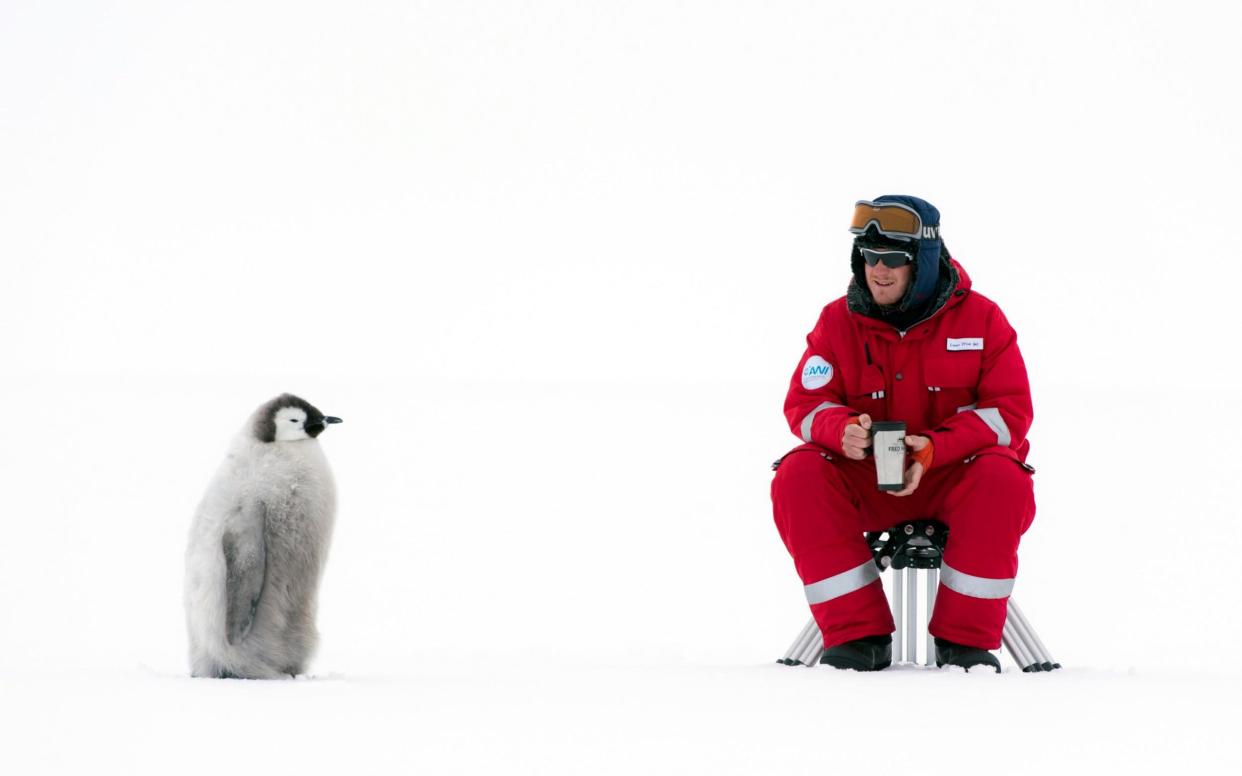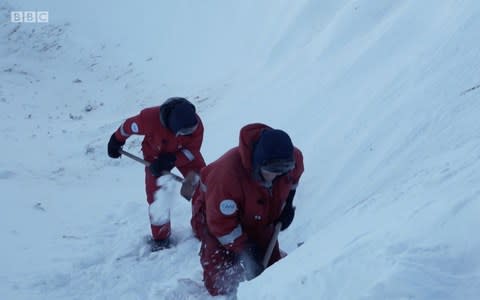BBC Natural History Unit boss: why we stepped in to save the penguins

The BBC’s Natural History Unit has defended a camera crew that broke the golden rule of wildlife film-making by stepping in to save some penguins from freezing to death with their chicks.
A crew based in the Antarctic for Dynasties, the new BBC One series, found the birds trapped in a gully as a storm raged around them.
After being moved to tears by the plight of one chick that died as it tried to get out of the ravine, the team dug a ramp in the snow that allowed the surviving penguins to walk to safety.
Sir David Attenborough, who narrates the series, previously said: “If you’re a film cameraman, you are trained, as it were, to be the observer - a non-participant. That’s very important.”
However, Mike Gunton, head of the Natural History Unit, said there are “always exceptions” to the rule.
“In the 30 years I’ve been doing this, it is one of the very few occasions when we’ve ever done anything like this, because it’s a very unusual situation,” he told Radio 4’s Today programme.

“Normally you don’t interfere, you can’t interfere, you wouldn’t interfere, because of all sorts of consequences.
“It would [usually] be very dangerous to do, both for you and the animal; you would probably be changing the dynamics of the natural system or you might be depriving something of food. But in this particular situation none of those things applied.
“No hands were laid on these animals. ‘Intervention’ is quite a strong word. Really, all they did was make some cuts in the ice so that if the birds wanted to they could get a grip and escape the gully with their chicks still on their feet.”
Mr Gunton said he discussed the episode with Sir David, who said he would have done the same thing had he been there. “Both he and the Antarctic authorities have supported what we did and thought it was the right thing to do.”

In the BBC’s 2013 series, Africa, an elephant calf starved to death in a drought. “That’s a perfect example of when you would not intervene,” Mr Gunton said. “Even if you wanted to, what would you do? This animal was starving to death, there was no food anywhere. You’re just prolonging the inevitable.”
The decision had the support of other experts. Alastair Fothergill, former head of the Natural History Unit and now making Our Planet for Netflix, said: “All of us who make wildlife films have witnessed a predator and prey scenario where we could have intervened. There was a cheetah mother with some tiny cubs and we saw hyenas coming to kill the cubs.
“We had been working with these animals for many months and couldn’t help being emotionally attached. We could easily have driven towards the hyenas and scared them off. But the rule is: don’t interfere. One animal is another animal’s meal.
“The situation with the emperor penguins is pretty unique and almost the exception that proves the rule.”

 Yahoo News
Yahoo News 
